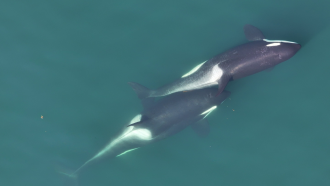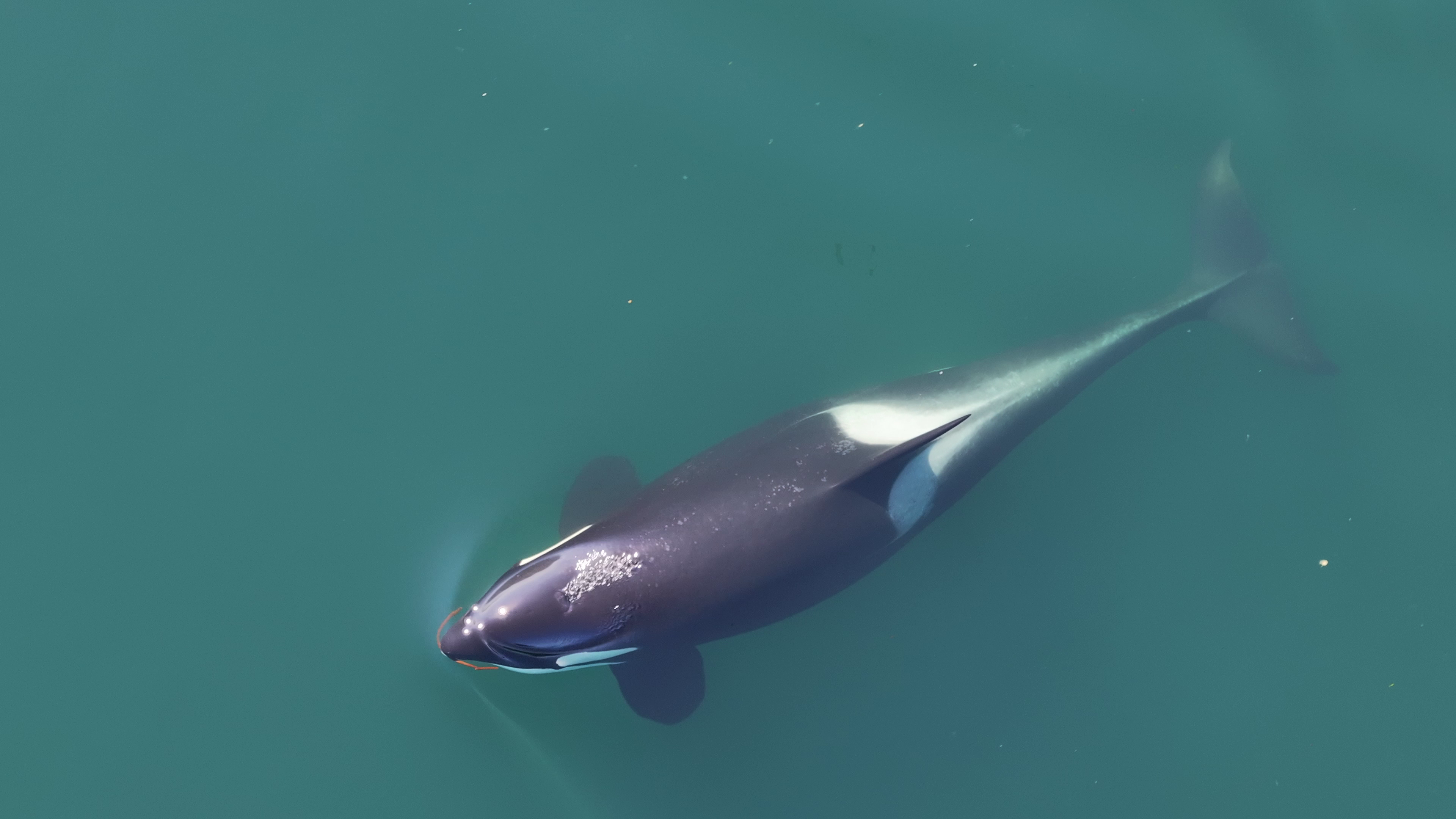Media release
From:
Killer whales groom each other using tools made from kelp
Primates, birds, and elephants are all known to make tools, but examples of tool use among marine animals are much more limited. Reporting in the Cell Press journal Current Biology on June 23, a team of whale experts has found widespread tool manufacture and usage in an endangered population of resident killer whales living in the Salish Sea—part of the Pacific Ocean between British Columbia and Washington. The whales fashion tools from kelp and use them for grooming purposes.
“We found that southern resident killer whales regularly use lengths of bull kelp during social interactions, apparently as a tool to groom one another,” says Michael Weiss (@CetaceanMike) of the Center for Whale Research in Friday Harbor, WA. “To find that the whales were not just using but also manufacturing tools, and that these objects were being used in a way never before reported in marine mammals, was incredibly exciting.”
Weiss and his team discovered this unexpected whale activity while conducting aerial observations of southern resident killer whales, which are a critically endangered whale population with fewer than 80 individuals left found in the Pacific Northwest. The team has been monitoring the whales since 2018 to learn more about their foraging and social behavior.
“While there are other killer whales around the world, the southern residents represent a genetically, ecologically, and culturally distinct population,” says Weiss.
Through the high-resolution footage collected by their aircraft, the researchers found that the whales created tools by breaking off the ends of bull kelp stalks. They then pressed pieces of kelp against a partner and rolled the kelp between their bodies for long periods of time.
The researchers observed this behavior in whales across all social groups, both sexes, and all age classes. They found that whales were more likely to groom closely related whales or similarly aged partners. They also saw some evidence that whales with more molting or dead skin were more likely to engage in grooming, suggesting it may have a hygienic function.
“What I find most remarkable is that despite this apparently being a common behavior—we see it most days we fly our drone over these whales—it hadn’t yet been discovered in this population despite nearly 50 years of dedicated observation,” says Weiss. “To me, this demonstrates not just the power of new observation methods but also how much we still have to learn about these animals.”
It remains unclear whether this grooming behavior is entirely unique to this population or more widespread among other whale populations and species. Regardless, the discovery opens new avenues for understanding tool use in marine mammals and demonstrates that tools can be used in a wide array of contexts, say the researchers.
“This finding highlights yet another way these whales’ society and culture is unique and the importance of recovering the southern resident killer whale population,” says Weiss.
Multimedia








 International
International



